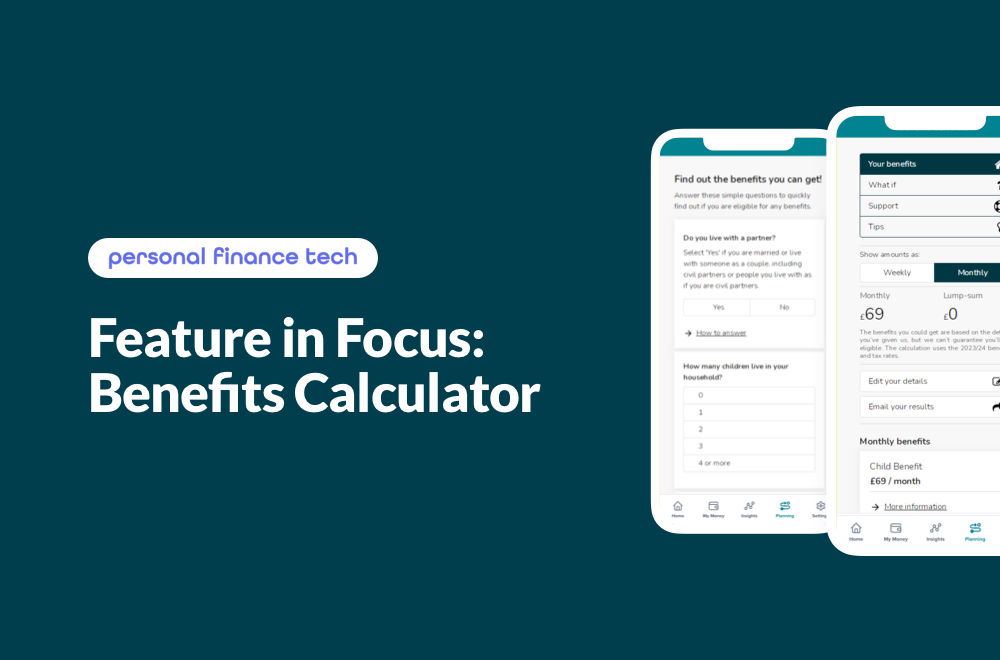Samantha Seaton gives L&G magazine round up of how Moneyhub is disrupting the financial sector. Including insights on how the app is benefiting lenders and borrowers as well as how innovations in tech, such as 5G, will take the app to the next level. Asked what the future looks like, Moneyhub aims to unlock the power of Open Data and transform the way customers interact with financial data - truly maximising financial literacy nationwide.
What is Moneyhub?
Moneyhub is a truly unique financial management platform, deployed by companies in their digital propositions (directly as a white-labelled solution or embedded via APIs) enabling an entirely new level of personalisation and customer interaction.
As pioneers of Open Banking, the Moneyhub platform offers the most data links of any aggregation provider in the UK. Giving easy, consolidated access to credit cards, loans, bank accounts, mortgages, investments, pensions, SIPPs, ISAs for the end user.
Through AI, the platform will analyse an individual’s data and offer personalised ‘smart nudges’ to improve financial wellbeing. Standard nudges can be included or excluded on implementation by the company providing the solution, or bespoke nudges that are more tailored to the particular relationship they have with the individual can also be accommodated.
Moreover, by automating simple administration tasks like alerting when a loan-to-value threshold has been crossed on a mortgage, through to complex machine learning insights, Moneyhub removes the time and effort required to achieve optimal financial management.
Culminating with Moneyhub’s Payment Gateway to make nudges immediately actionable means a 40% increase on take up. All at a fraction of the cost of legacy payment methods such as Visa, Paypal and Stripe.
What are the greatest opportunities for borrowers and lenders using a platform like Moneyhub?
Lenders can benefit hugely from including a platform like Moneyhub in their proposition. It automates data capture and gives greater and more accurate insight into the spending patterns of their customers. Lending is no longer binary with a yes or no decision, a third option can easily be presented to help customers not yet meeting the lending criteria.
For borrowers, the platform enables them to be smarter about their finances and make more informed choices when it comes to spending and borrowing.
How do you see the generational gap affecting take up of mobile financial solutions?
In the digital age, consumer expectations are for smarter technology making it easier to achieve their goals.
With mobile financial solutions being utilised across the ages, it is the level of expectation from money platforms that divides the generations the most. Where millennials expect technology to present clear but highly personalised options, the older generation want to understand the reasoning behind any recommendations. In all cases the demand for speed, efficiency and seamlessness is increasing. One key difference is in the device that different generations use to manage their money, be it their mobile phone, browser, or tablet, so it is important to be agnostic and let people choose.
With effortless money management it is now possible to prepare for a sustainable financial future from an early age. It is equally attractive in later life when managing finances in retirement.
Even those that don’t directly embrace technology, and particularly vulnerable individuals, will benefit and be protected via Moneyhub Connect and chosen friends, family, advisers and solicitors.
And from a business perspective, the opportunity to engage with customers across generations and income thresholds is maximised by financial technology.
What will 5G and other innovations in communications make possible?
Knowing the next best thing to do with money and automating the action required will see consumers better off. Open Banking will become Open Data. This means the consumer will be in complete control of all their data encompassing pensions, insurance, medical, property, qualifications, driving profile and so forth. The result will be data working for the consumer to help them achieve their goals and improve their overall wellbeing.
Measuring how often people interact with our digital propositions will be a thing of the past. Outcomes will be the measure of success.
What are your aspirations for the future?
Moneyhub is a people first financial management platform designed to improve financial wellness by empowering individuals while providing businesses with insights that unlock growth. By championing the consent-based sharing of consumers’ financial data, we are seeing the maximisation of financial wellbeing across our client’s customers and employees.
Our goal is to unlock the power of Open Data and transform the way customers interact with financial data. By helping lenders and borrowers alike, we want to create a more sustainable and stable financial world.










